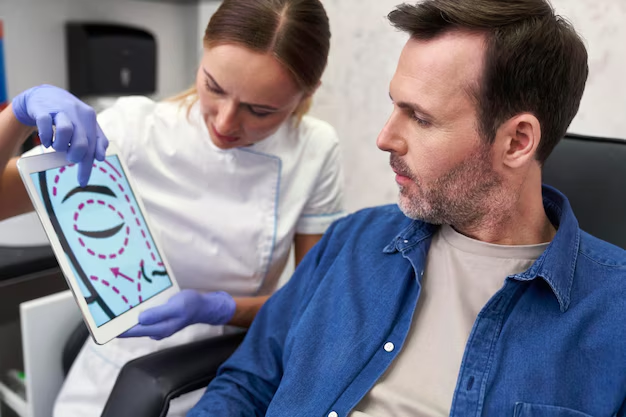When Is It Safe to Drive After Cataract Surgery? 🚗✔️
Cataract surgery is a life-changing procedure for many, offering the promise of clearer vision and improved quality of life. However, post-surgery activities, especially driving, are key concerns for patients. So, when can you get back behind the wheel after cataract surgery? This article aims to provide a comprehensive look at this question and guide you through important considerations and related facts.
What Is Cataract Surgery and Why Is Recovery Important?
Cataract surgery involves removing the cloudy lens of the eye and replacing it with an artificial one. The primary goal is to restore clear vision, which can significantly enhance daily activities and overall well-being. Recovery, however, is crucial. While modern cataract surgery is generally safe and effective, ensuring a smooth recovery is essential for optimal results. Driving is one of the activities that requires significant caution during this period.
The Immediate Aftermath: What Happens Post-Surgery
Right after the procedure, your vision might be blurred or distorted. This is normal as your eye adjusts to the new lens. You may also experience mild discomfort, sensitivity to light, and a gritty feeling. Most of these symptoms pass within a few days, but they can affect your ability to drive safely.
How Long Should You Wait Before Driving?
There's no one-size-fits-all answer to this question. Generally, most patients are advised to wait at least 24-48 hours before considering driving, but this depends on several factors:
- Vision Clarity: Ensure you have regained clear and stable vision.
- Doctor's Approval: Always seek confirmation from your ophthalmologist before driving.
- Personal Comfort and Confidence: Feel confident in your ability to drive safely.
Factors Influencing Your Return to Driving
Vision Stabilization
For some, vision stabilizes quickly, while others take longer. You'll need to be able to see clearly at various distances before driving. Patients often experience significant improvements within days, but full stabilization can take a few weeks.
Light Sensitivity
Cataract surgery can initially increase sensitivity to bright lights. This sensitivity can make driving in daylight or at night challenging. Sunglasses may help mitigate this issue during daylight.
Depth Perception
Adapting to the new lens can temporarily affect depth perception. It's important for tasks involving hand-eye coordination, such as gauging distances between vehicles or during parking.
Guidelines for Post-Surgery Driving
Once your doctor gives the green light, consider these safety tips:
- Test Drive with a Companion: Take a short, supervised drive with a friend or family member to assess your comfort.
- Avoid Night Driving Initially: Reduced visibility and glare from oncoming headlights can pose a challenge.
- Stick to Familiar Routes: Knowing the roads will give you added confidence as you regain your driving abilities.
- Stay Informed: Keep up with follow-up appointments and adhere to all post-op care instructions.
What to Expect in the Days Following Surgery
First Few Days
During this period, focus on rest and shield your eyes from potential irritants. Avoid heavy lifting, bending over, and strenuous activities. Your depth perception and vision may fluctuate, so caution is crucial.
One Week Later
Some patients feel comfortable driving within a week, provided their vision has sufficiently stabilized and their healthcare provider agrees.
Two to Four Weeks
By now, most patients' visual issues relating to surgery have resolved. At this stage, driving often returns to normal, although night driving might still require extra care.
Additional Considerations for Specific Situations
If You Have Had Cataract Surgery in Both Eyes
Vision adjustments might be more complex, as each eye may heal at a different pace. Discuss the situation with your doctor, who will offer guidance specific to your recovery.
Regular Check-Ups and Monitoring
Attending post-operative appointments is vital. These visits allow healthcare providers to monitor your progress and provide tailored advice, including fitness to drive.
Non-Driving Tips for a Smooth Recovery
Since you'll need some time before driving, consider alternative transportation during the recovery phase:
- Public Transport: A safe and efficient option if your vision allows.
- Rideshares: Consider services like Uber or Lyft for convenience.
- Ride with Friends or Family: Coordinate with loved ones to get assistance with essential errands.
Embrace the Transition: Life After Cataract Surgery
Cataract surgery can profoundly enhance your quality of life, making everyday tasks like reading, watching TV, and yes, driving, more enjoyable. As your vision improves, so does your independence.
Takeaways for a Successful Recovery
- Communicate with Health Professionals: Your eye surgeon is your best resource for recovery advice.
- Patience is Key: Allow adequate time for your eyes to heal before resuming driving.
- Adapt to Changes: Expect some vision changes and gradually adapt to your improved eyesight.
Whether you're getting back to work, enjoying leisure activities, or ready to hit the road, your vision is a vital part of regaining control and confidence. While the timeline for returning to driving varies, your comfort and safety should always come first. Keep informed, follow your doctor's advice, and soon you'll be navigating the roads with newfound clarity.
Quick Tips for Driving Post-Cataract Surgery 🚦
- 🗓️ Wait at least 24-48 hours before considering driving.
- 👨⚕️ Get your doctor’s approval to ensure your vision is stable.
- 😎 Wear sunglasses to combat light sensitivity when driving during the day.
- 🛣️ Stick to short drives initially, on familiar roads.
- 🚫 Avoid night driving until confident with glare and visibility aspects.
- 👫 Arrange alternative transport if needed during recovery.
Embrace the clarity and freedom that comes with improved vision but prioritize safety above all else as you transition back to driving.

Related Articles
- Are Cataracts Curable
- Are Cataracts Genetic
- Are Cataracts Hereditary
- Are Cataracts Nuclear Sclerosis
- Are Cataracts Painful
- Are Ivizia Eye Drops Okay After Cataract Surgery
- Are You Awake During Cataract Surgery
- Are You Awake For Cataract Surgery
- Are You Put To Sleep For Cataract Surgery
- Are You Sedated For Cataract Surgery
